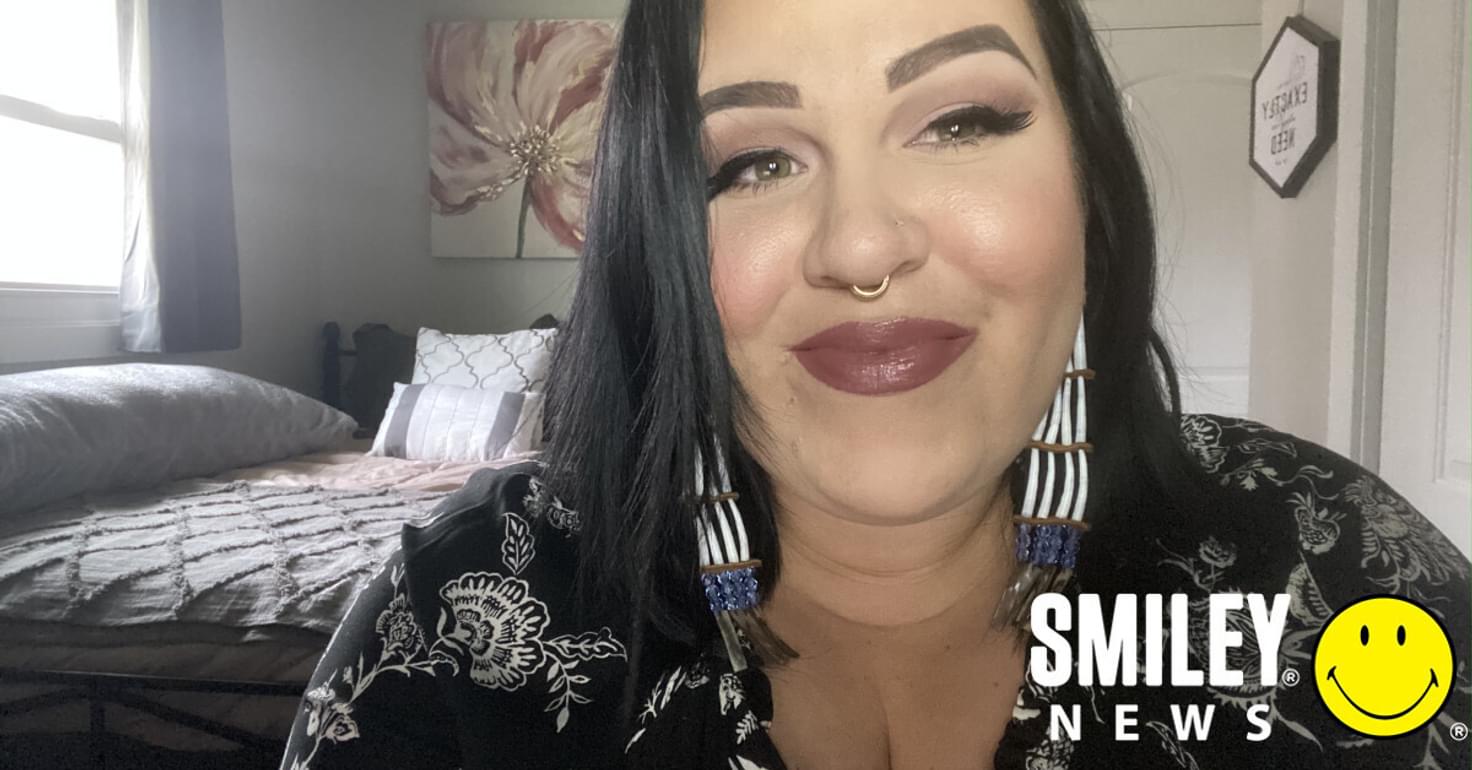
Words by Smiley Team
Patrons of the Planet is a weekly series where we hear from climate heroes of the global south and the world’s indigenous communities.
As an Indigenous, Haudenosaunee woman from the Oneida Nation of Wisconsin, I'm at COP26 to push for a socially just approach to tackling climate change. My community’s original territories are in upstate New York, but due to waves of colonisation and migration, we now reside on the traditional lands of the Menominee and Ho-chunk People in northeast Wisconsin, which is about four hours north of Chicago.
I'm a part of the Indigenous women delegation at Cultural Survival, and a member of the Indigenous Peoples’ Caucus. I’ve travelled all the way to Scotland to ensure our rights are respected, honoured and included in these climate negotiations.
[Read more at the individuals and group driving positive action for the climate]
Myself, along with many others, are calling for the operationalisation of the United Nations Declaration on the Rights of Indigenous peoples as it relates to climate change mitigation and adaptation. Indigenous peoples and our traditional knowledge are referenced in multiple places throughout the Paris Agreement, therefore every single one of these references requires political and financial commitments for us, our lands, territories and traditional knowledge from parties at the conference.
We hold the solutions to climate change. We are on the frontlines of climate chaos and it is impacting every part of our livelihoods. It is critical that our communities must be included in every part of the decision making process at the local, regional, state and international levels.
Currently, that's not happening. However, we're hoping to turn this around and advocate for the necessary changes during and after this year’s conference.
One thing that often distracts negotiators from socially-sensitive approaches is purely nature-based solutions. Unfortunately, this kind of response to climate change omits peoples’ livelihoods. In this way, it serves as yet another erasure and genocidal tactic to displace Indigenous peoples from our lands, further extracting and commodifying our lands, territories, and natural resources.
Instead, I sincerely hope COP26 will employ a social, people and rights centred approach to understand and act on climate change mitigation and adaptation. Because it's not just about the environment, it's also about the people who exist in these environments that we wish to preserve and protect. Those lands they speak of are Indigenous lands and territories, and we are the experts of our own landscapes.
For the summit to engage well with Indigenous peoples, delegates need to honour our land titling, tenure and stewardship as a means to address climate change, and this is done so applying through place-based solutions, not scalable, nature-based solutions. This means letting us take the lead and resourcing our leadership, capacity building, and ultimately, our self-determination.
As an Indigenous woman, I have a responsibility to respect, care for and protect the natural world in every aspect of my life. Primarily, my way of life involves living in reciprocity with the land and all her beings. It involves making offerings to the land, caring for it, not over-harvesting and cultivating it in a regenerative way which ensures balance between people, place and all living things.
I am privileged to be able to bridge my personal and professional commitments to climate change with my work at Cultural Survival, which is a 50-year-old Indigenous-led organisation that supports Indigenous Peoples’ rights, their self-determination and political resilience. Thematically we focus on Indigenous climate change solutions, lands and livelihoods, cultures and languages and Indigenous community media.
We support communities through a rights-based approach through a four-pronged approach via grantmaking, advocacy, capacity building and communications.
As part of our work, the organisation promotes indigenous climate change solutions. This involves engaging with communities in a multitude of ways: providing direct financial resources through grants, amplifying Indigenous voices on our communications platforms, helping them navigate the UN and human rights mechanisms to advance their own advocacy efforts, and providing capacity building training and workshops.
Drawing on Cultural Survival’s values, principles and thematic areas, the message I carry with me to Glasgow is that this now more than ever, a holistic, rights-based approach that centres Indigenous peoples’ rights and leadership to lead the way to address the climate, social and economic crises we face today.
Cultural Survival is an Indigenous-led NGO that advocates for Indigenous peoples’ rights and supports Indigenous communities’ self-determination, cultures, and political resilience, since 1972. Support their work by donating here.
Patrons of the Planet is a weekly series to amplify the voices of heroes on the frontline of climate campaign work, as told to Blyth Brentnall. Every Tuesday, we meet individuals from the global south and indigenous groups who have risen above increasing adversity to support their communities, conserve nature and protect the planet for future generations.